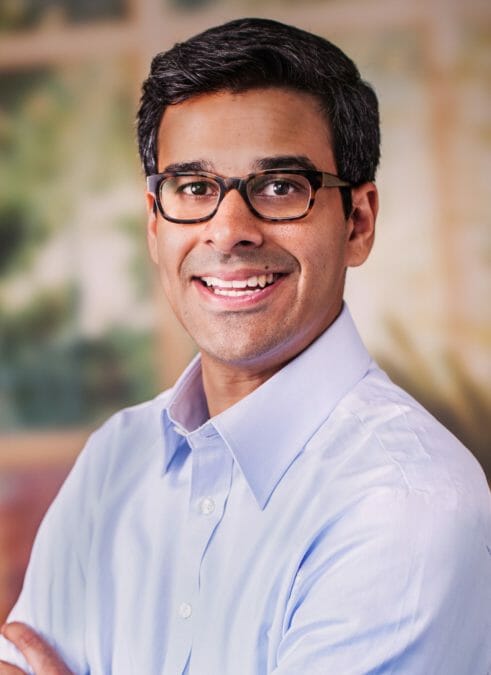In the words of an athlete I followed growing up, Mike Tyson said, “Everyone has a plan until you get punched in the mouth.”
I was in the role of CEO at ServiceMax for a year and all metrics were pointing up. We were gearing up for a series of company kick-off meetings to bring the team together and get pumped for the new fiscal year when the news from China started breaking.
Our first meeting was to be in India with plans for our engineering team from China to fly in, and though there were no strict quarantines in place, we had to address the rapidly developing situation.
I’ve used the word “unprecedented” too many times to count, but the truth is we didn’t have anywhere to look other than inward to help us make the call. The virus was just starting to unveil itself and we were fielding employee emotions ranging from alarm at being potentially exposed to “it’s like the flu, how can you exclude the Chinese employees from the once-a-year event?”
After much internal discussion and debate with my leadership team, I felt the conservative approach was most prudent and asked all our colleagues in China stay home and not come to kick-off.
Ultimately, I knew we could make up for the team missing the event if coronavirus didn’t amount to much, but we would have serious regrets and implications if we risked exposure to half of our employee base. Of course, now it’s standard practice not to go to an event, nor is it seen as an over-reaction, but at the time it was an extremely difficult decision to exclude them from what should be a unifying company event. Yet deep down it also felt like the right thing for them and their families.
A guiding principle
That conservative approach has continued to be a guiding principle of our decisions over the last two months.
In early February, we held the second company kick-off in LA with 400 employees. On day two the media reported that a Korean Air flight attendant who had tested positive and been in LA and stayed at our conference hotel just a few days prior. It’s a moment no CEO wants to experience. The thought that the bulk of your employees are now in harm’s way because of something you’ve asked them to do.
We worked with the hotel general manager, the CDC and local authorities to understand the reality and impact. All the time you’re asking yourself, ‘should we just send everyone home?’; ‘what have we all been exposed to?’; ‘what if we go home and spread this further?’
As it turned out, much of that story was unconfirmed and there was no immediate threat to our employees, but the experience and the weight of a global pandemic affecting your workforce and entire business (and the high risk of any wrong decisions) was unprecedented for me as a CEO.
Again, I knew my decision in India was the right one, and I knew we had to continue to act proactively and cautiously here at home as well as abroad. As a precaution, we sent our employees home several days ahead of the ‘shelter in place order’. I figured if we are right, we have helped to slow the spread and kept our employees healthy. If we are wrong, the implications are immense.
Coronavirus Diary: what resilience looks like — my conversations with mission-critical industries
Operating in the “new normal”
Like many organisations, we are all learning to operate in this “new normal.”
Balancing working remotely with children or caring for other family members is a reality we are all living in and embracing.
To keep our teams connected, we are in constant communication on our Zinc platform, have regular meetings on Zoom, and hold weekly global all hands for the entire company.
We also use Zinc to spin up social groups like ‘What to Binge Watch’, ‘Parenting in the Time of Corona’, ‘Philanthropy’ etcetera.
Communication and transparency are key and it’s important for staff to still feel they collectively work together. We have a mantra within the company that we #wintogether. It’s been amazing to see just how deep that goes.
The financial challenge
Financially, it’s also challenging coming off a record year, only for that momentum to potentially slow due to things out of our control. We’re preparing to weather the economic challenge facing every business, making tough decisions now to avoid impact on our workforce down the line, and sacrificing the ‘nice to haves’ for the what’s most important.
Coronavirus Diary: the impact on a semiconductor business
Customer communication
Externally, it became immediately apparent that many of our customers in manufacturing, medical device, life sciences and power would be playing a critical role in humanity’s fight against the virus. We’ve had continued discussions with them about how we best support their needs, mobilising teams around customer support and making our Zinc real-time communications platform freely and openly available.
We knew very early on that communication is critical in these work from home environments. Some customer users are support engineers who are working at home for the first time ever, while some are still out in the field but doing new things.
We’re also posting community job boards for any of our customers’ employees who have been furloughed that have skills other customers need. Many customers want to connect with each other. We’re putting together a chief services officer call, launched virtual coffee breaks and leveraging our customer community.
React fast
The weeks that have followed since our India kick-off in early February have been exceptional. The extraordinary has become the ordinary.
Like most people, I’ve been humbled by the way individuals, companies, communities and countries are forging together by staying apart to protect the vulnerable and fight this disease. Initiatives that would normally take months have been completed in weeks.
I certainly want to do my part to help my employees and find other innovative ways to support our customers, especially those who are fighting the fight. We are all living in uncertain times and none of this was part of the plan. But like any boxing match, it’s the quick reaction that will keep us from getting knocked off our feet and ultimately win the fight.








